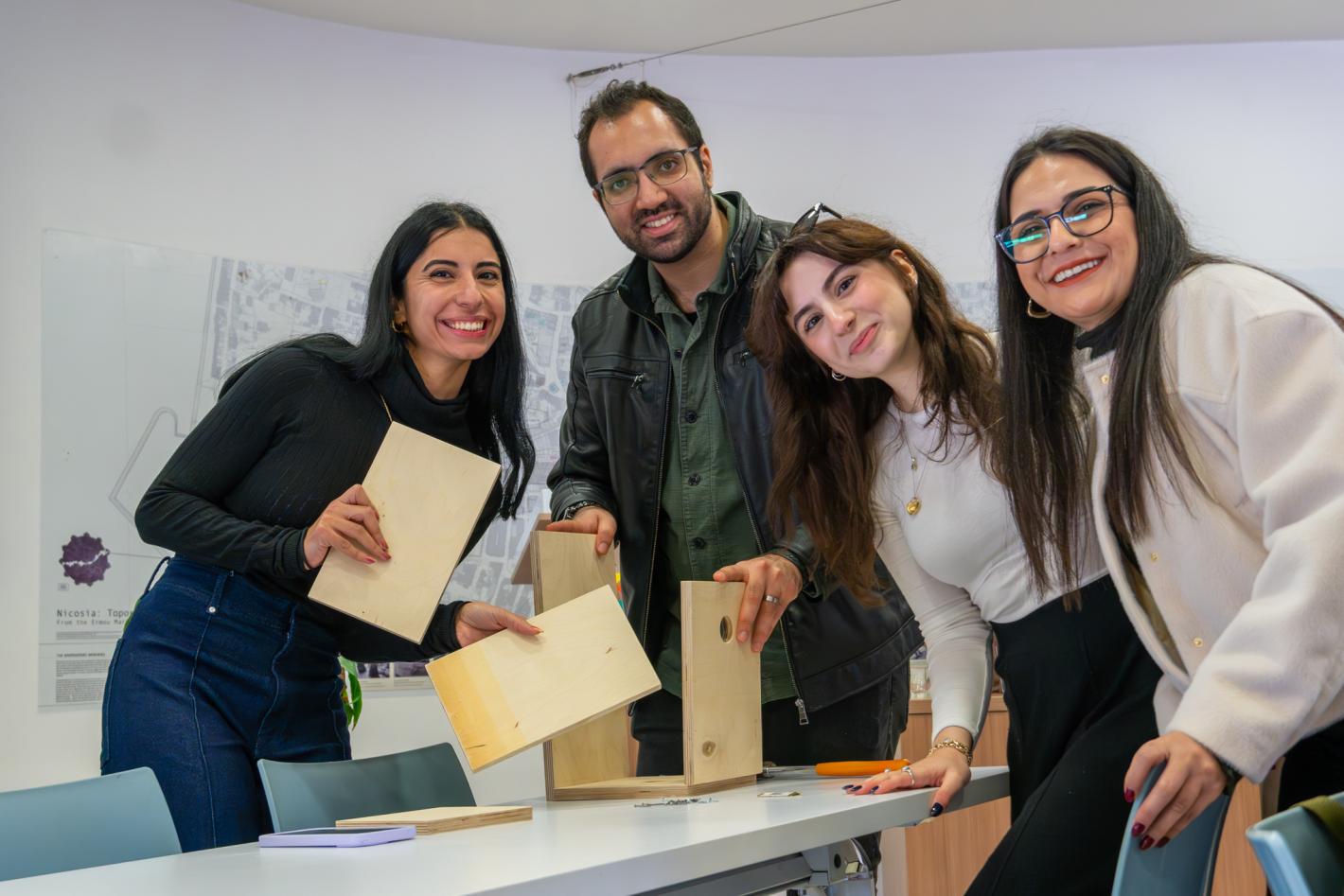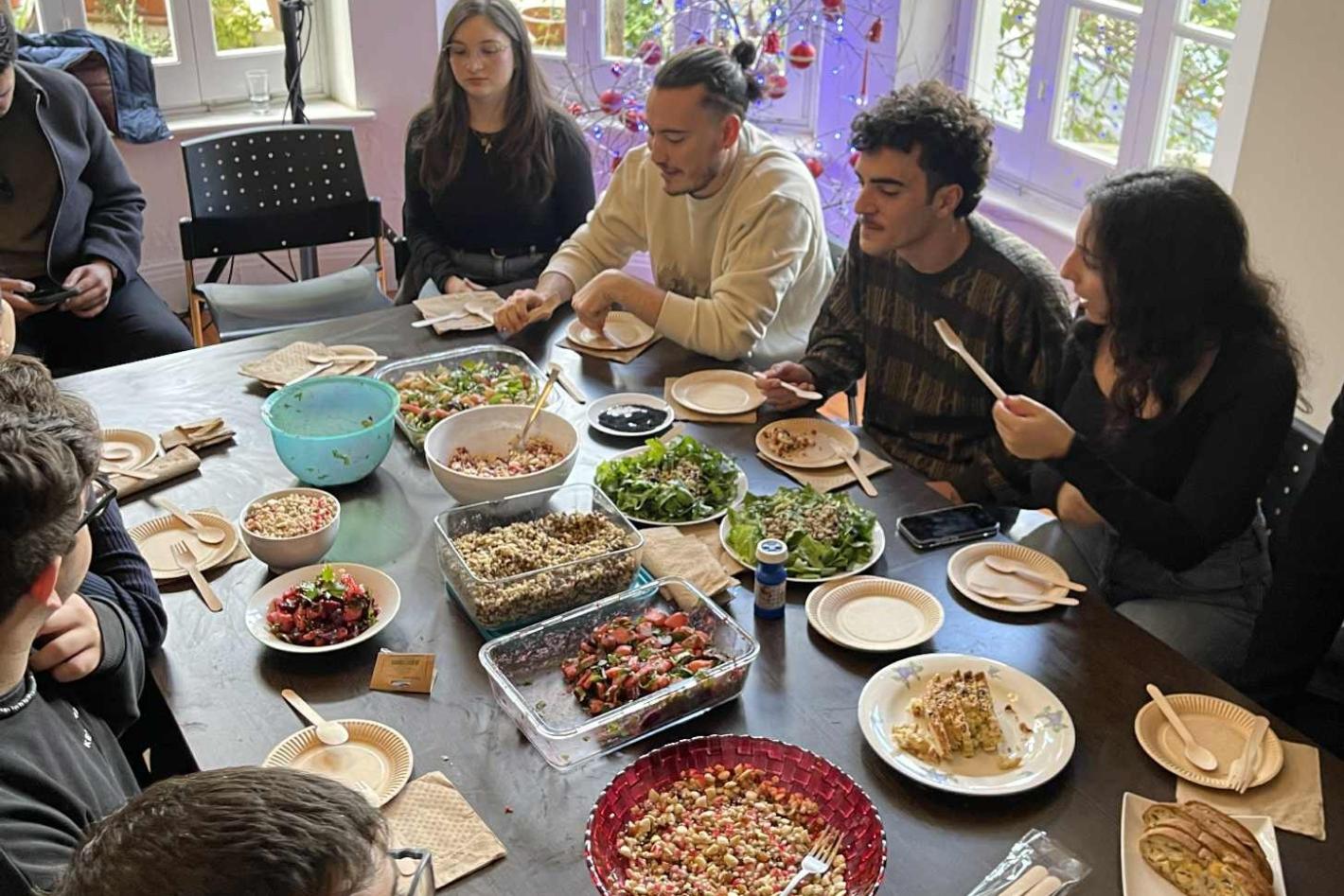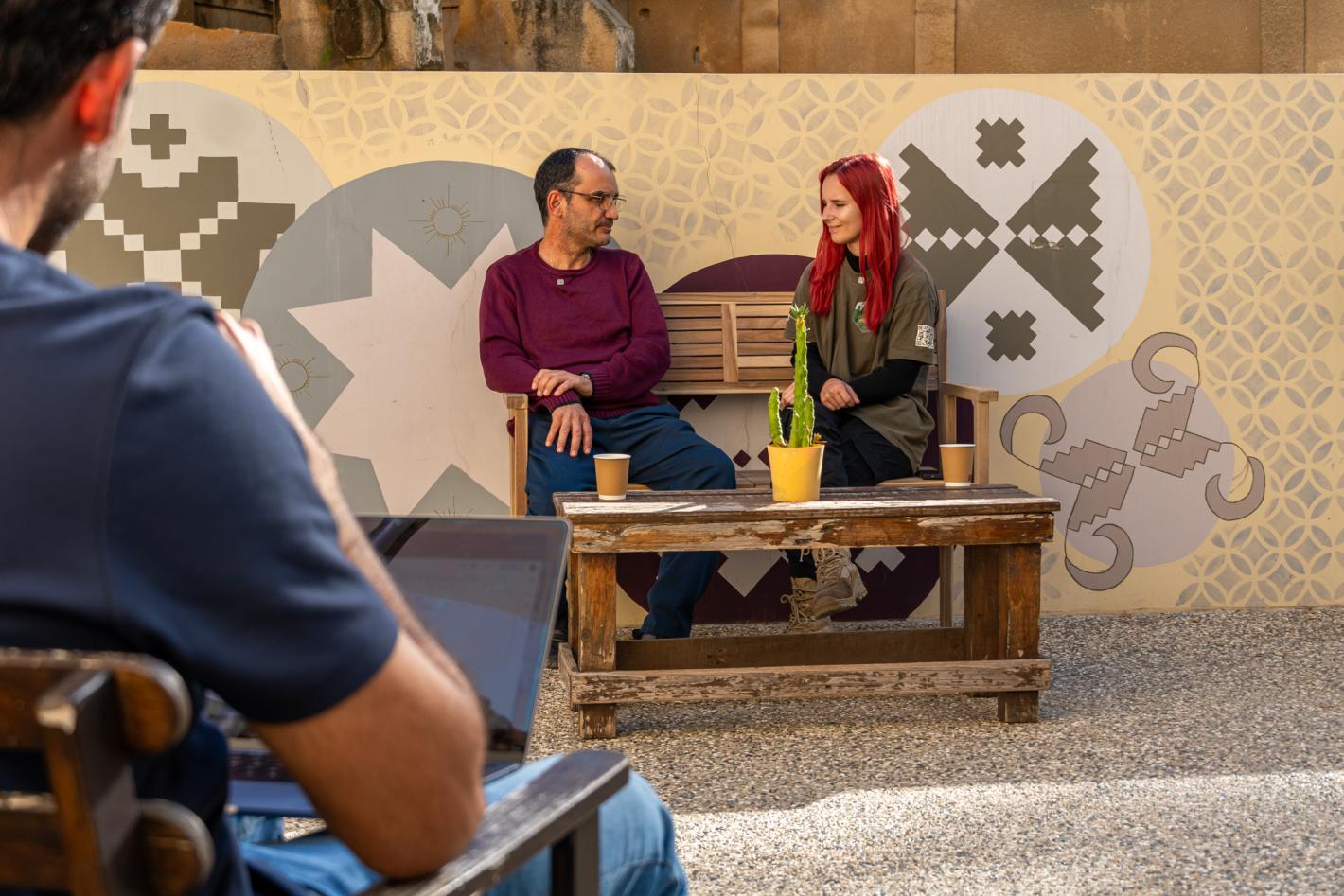NICOSIA, 17 December 2015 - Cypriots on both sides of the island follow developments in the Cyprus talks process keenly through the media, and attention has never been greater than now, as the leaders intensify their discussions and a long-awaited settlement seems within reach.
But beyond the images of handshakes, discussions at the table and statements at the end of the meetings, little is known about the machine that keeps the talks going; it actually involves several moving parts, from flight embargoes to security, catering arrangements and media invitations.
One waiter at the UN’s Good Offices – the venue in the Buffer Zone where the leaders meet – says more than 100 cups of coffee are consumed over the course of each meeting, with the catering staff under strict instructions not to speak or even listen to anything during the meetings.
Confidentiality is crucial to maintaining focus on the discussions until the customary public statement is given by the Special Advisor to the UN Secretary-general on Cyprus, Mr. Espen Barth Eide, on behalf of the Turkish Cypriot leader Mr. Mustafa Akıncı and the Greek Cypriot leader Mr. Nicos Anastasiades.
The meetings can last anywhere between four and eight hours, and members of the media from both sides of the island often have to wait an entire day between the arrival of the leaders and the public statement. The general feeling is that the longer the meeting takes, the better it’s going and the closer the island is to a solution, so the journalists bear the wait in good spirits, occupying themselves by catching up on other deadlines, chatting with colleagues of playing games of backgammon.
The long hours spent waiting together have allowed Greek Cypriot and Turkish Cypriot journalists to build strong friendships, exchanging notes for reporting and sharing the food they bring along for the talks. On most days, the atmosphere under the media tent is more picnic than media stakeout.
“Every conversation among journalists and technical crews in the tent outside the building of the Good Offices starts with the Cyprus Problem but always ends with the best places to eat on both sides of the island,” says Yiorgos Kakouris, of Politis News. “Life always shows up, bubbling under our preoccupation with every scrap of information about what’s being discussed and under the analysis of every word in joint statements and every non-verbal indication of the leaders and negotiators during that moment when they awkwardly stand in front of the cameras.”
“Journalists view the proceedings and our role in them with trademark journalistic sarcasm. We will make fun of everything - the triple checks on the way in, the endless wait the UN soldiers themselves have to endure, the latest thing in the news,” he added. “Greek Cypriot and Turkish Cypriot journalists roughly congregate on their sides of the tent, but the divide breaks down often and quickly. Sometimes, you even get a third, mixed collection of journalists arguing in English, disagreeing between and within communities.”
Fatma Kismir, a journalist who has attended almost every meeting since 1979, says all these years later, she still has hope that the Special Advisor will one day come out and announce that the leaders have agreed on a solution. Having started as an intrepid young reporter and now a grandmother, Kismir is determined to see the talks to their ultimate conclusion.
“Even if I am retired, even if I am 90 years old, it does not matter, I will announce the news on the solution agreement,” she said.
Kismir remembers with mortification how she screamed and cried with excitement as she reported on live TV shortly after the Annan Plan was announced in 2004, only realising what she had done while watching a re-run of the bulletin.
For some, the activity around the talks start days before the main event; military and police personnel, for example, start drills, including for escorting the Greek Cypriot and Turkish Cypriot leaders’ convoys into the Good Offices compound. The leaders arrive within minutes of each other and the procession, security and photo opportunities are managed, down to the last detail.
A pre-event briefing is peppered with acronyms that are meaningless to a civilian but are perfectly understood by the various military personnel in attendance. The Mobile Force Reserve (MFR) Commander reminds his team that they cannot relax until the “quick grip and grin for media” – the code name for the photo opportunity at the leaders’ arrival – is completed and the leaders walk into the meeting room. He reminds the men and women that they must always be at their best, because it is a media event and they are the faces of the UN in Cyprus.
Like the journalists, the security teams of Mr. Akinci and Mr. Anastasiades have formed close bonds and often sit down to share delicacies from each side of the island. The Turkish Cypriot team usually brings the Cypriot coffee machine to serve all the officers on duty, but so far no one has been assigned to read fortunes.
Inside the room where they are hosted, CIA-style sunglasses and jackets come off and stern faces are replaced with broad smiles and raucous laughter from anecdotes about each other’s hunting escapades. Fortunately, no one has yet admitted to hunting in the buffer zone, though many have expressed a desire to harvest wild asparagus when it is in season. The talks are more than just part of the job for the hunting enthusiasts among the security officials; they are pinning their hopes for an end to the ban on hunting in the Buffer Zone on the eventual outcome of leaders’ meetings.
The camaraderie that infuses the little community supporting the Cyprus Talks, and the interconnectedness of every part of the ‘machine’, is a good sign that Greek Cypriots and Turkish Cypriots ultimately share the same values, the same desire for an end to the Cyprus problem and can live together harmoniously.






